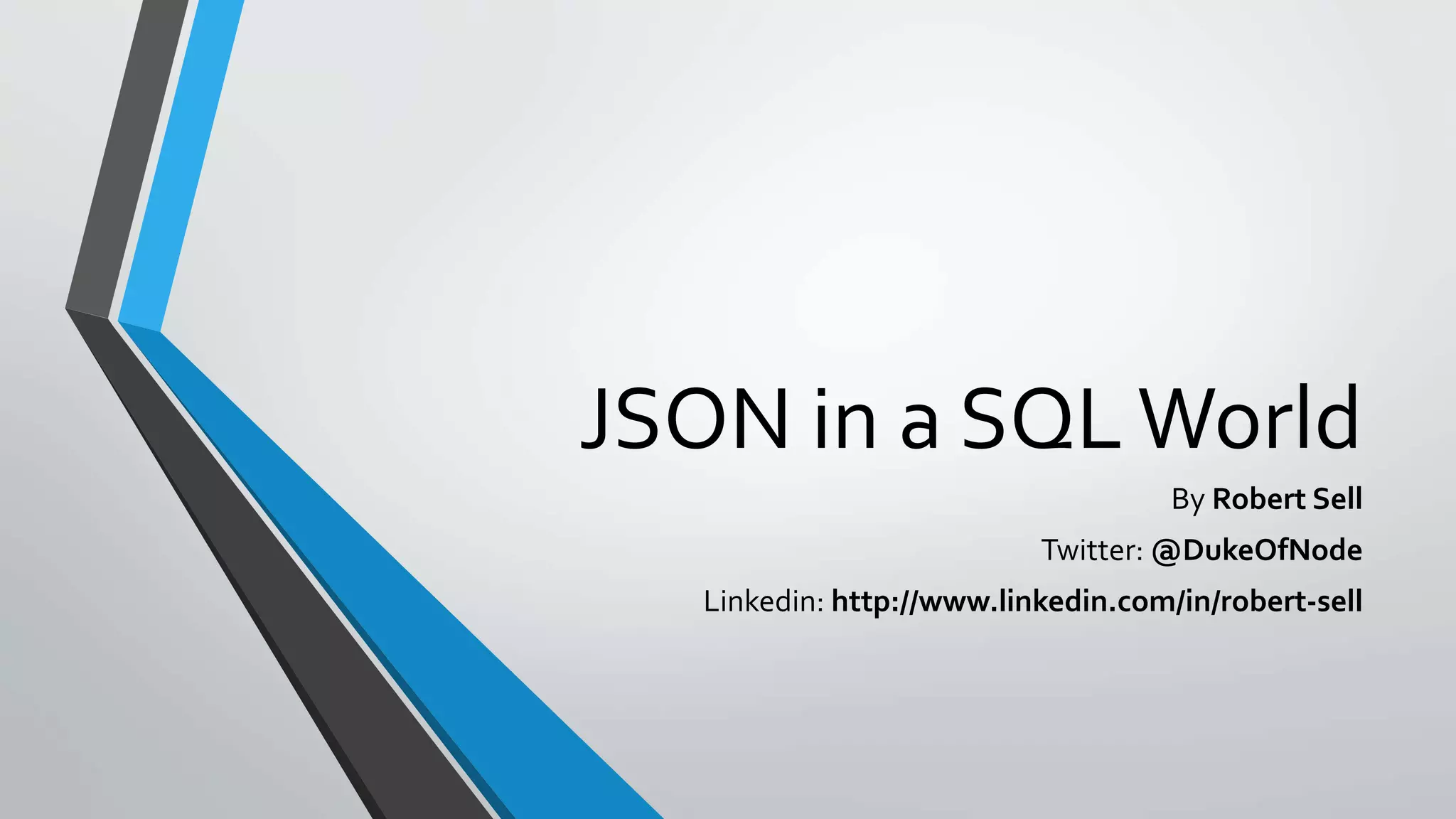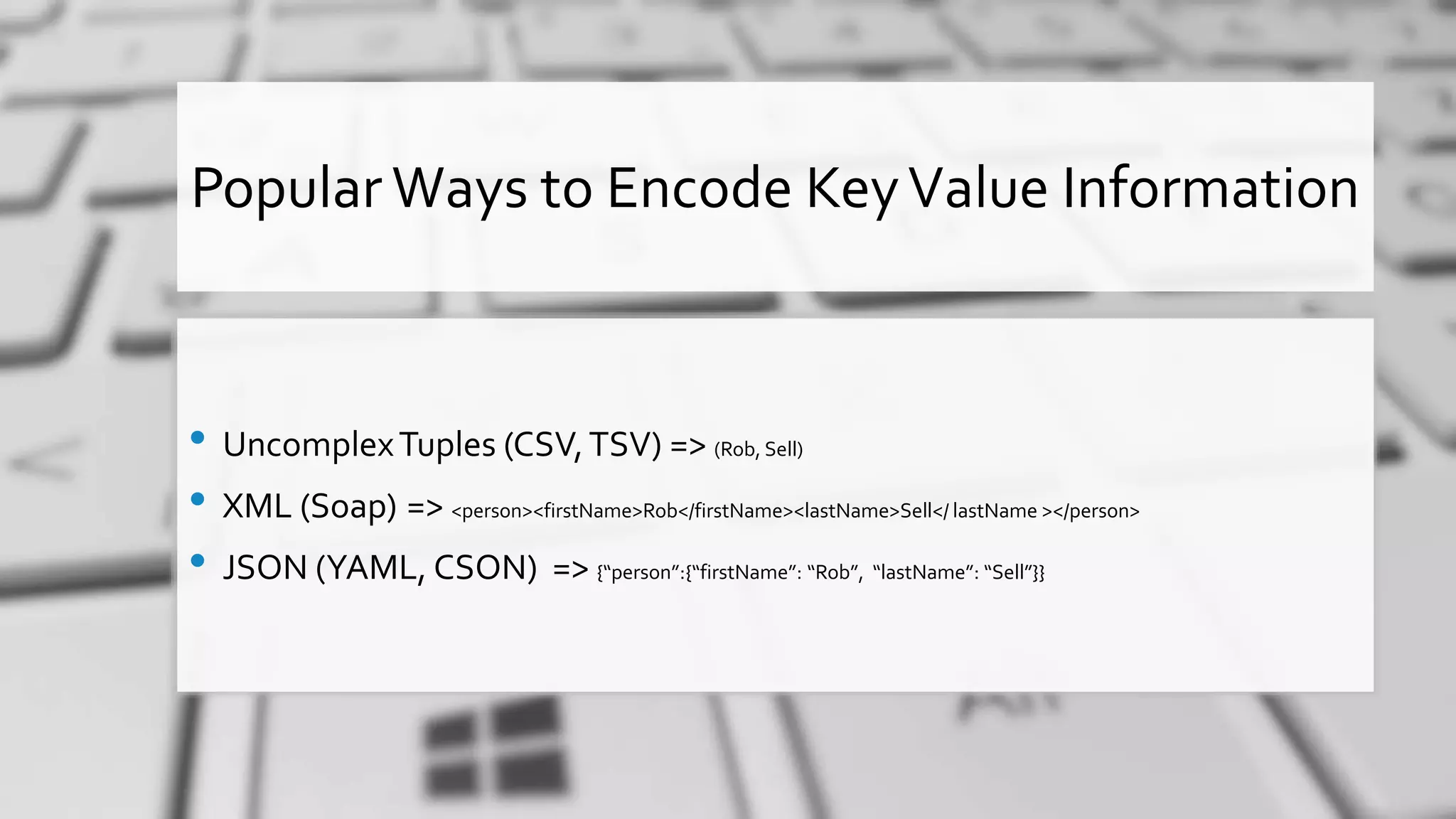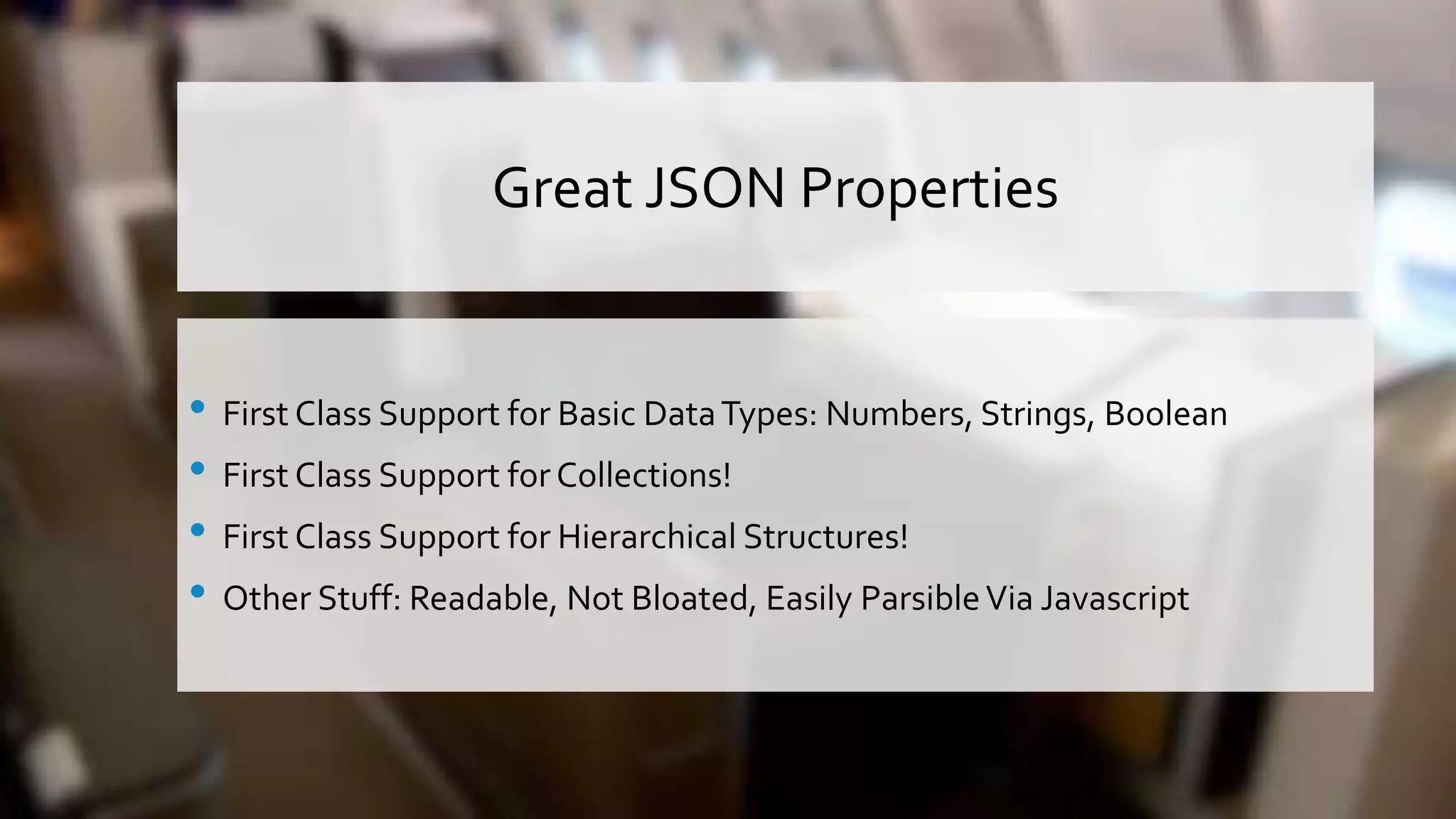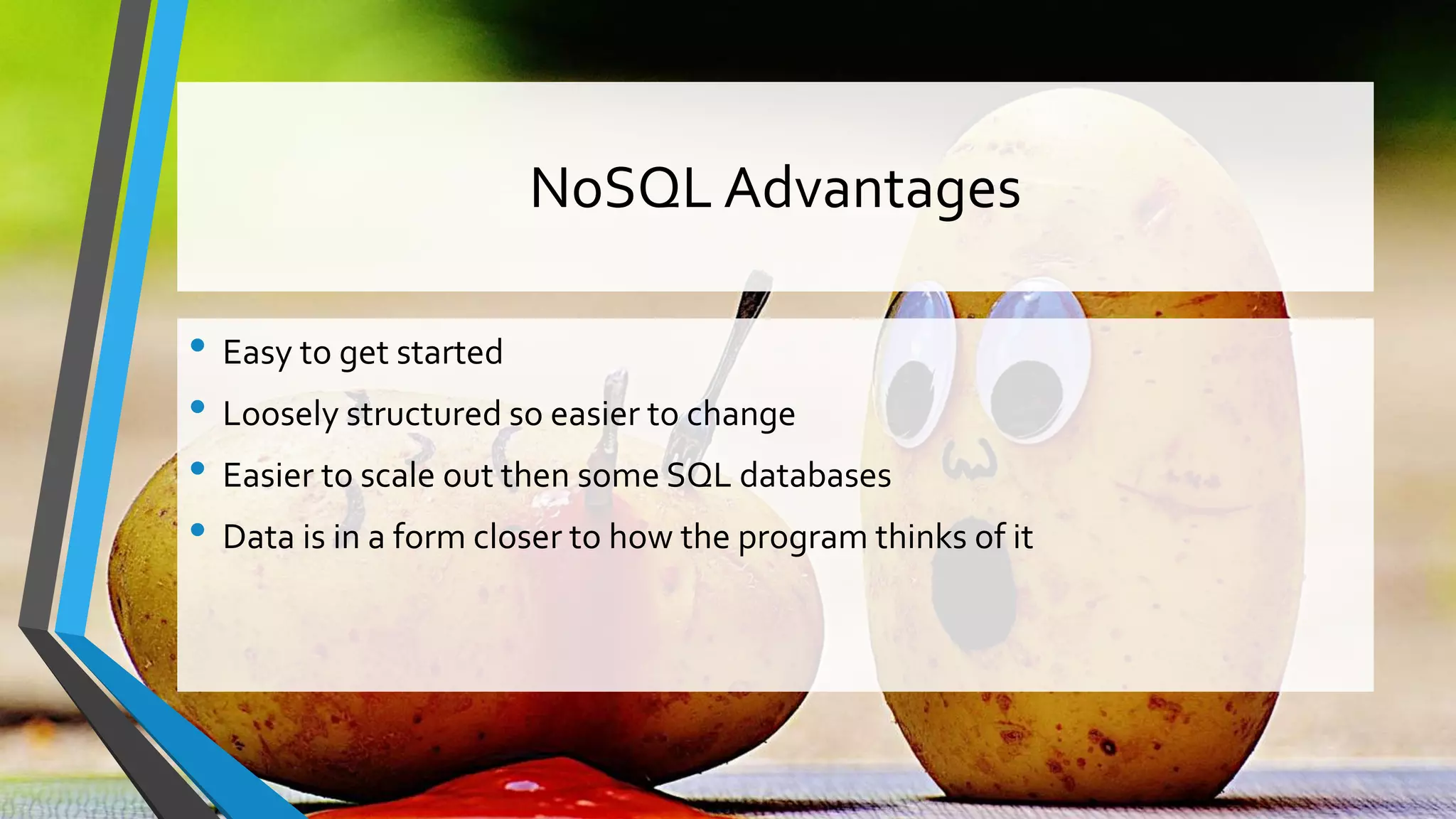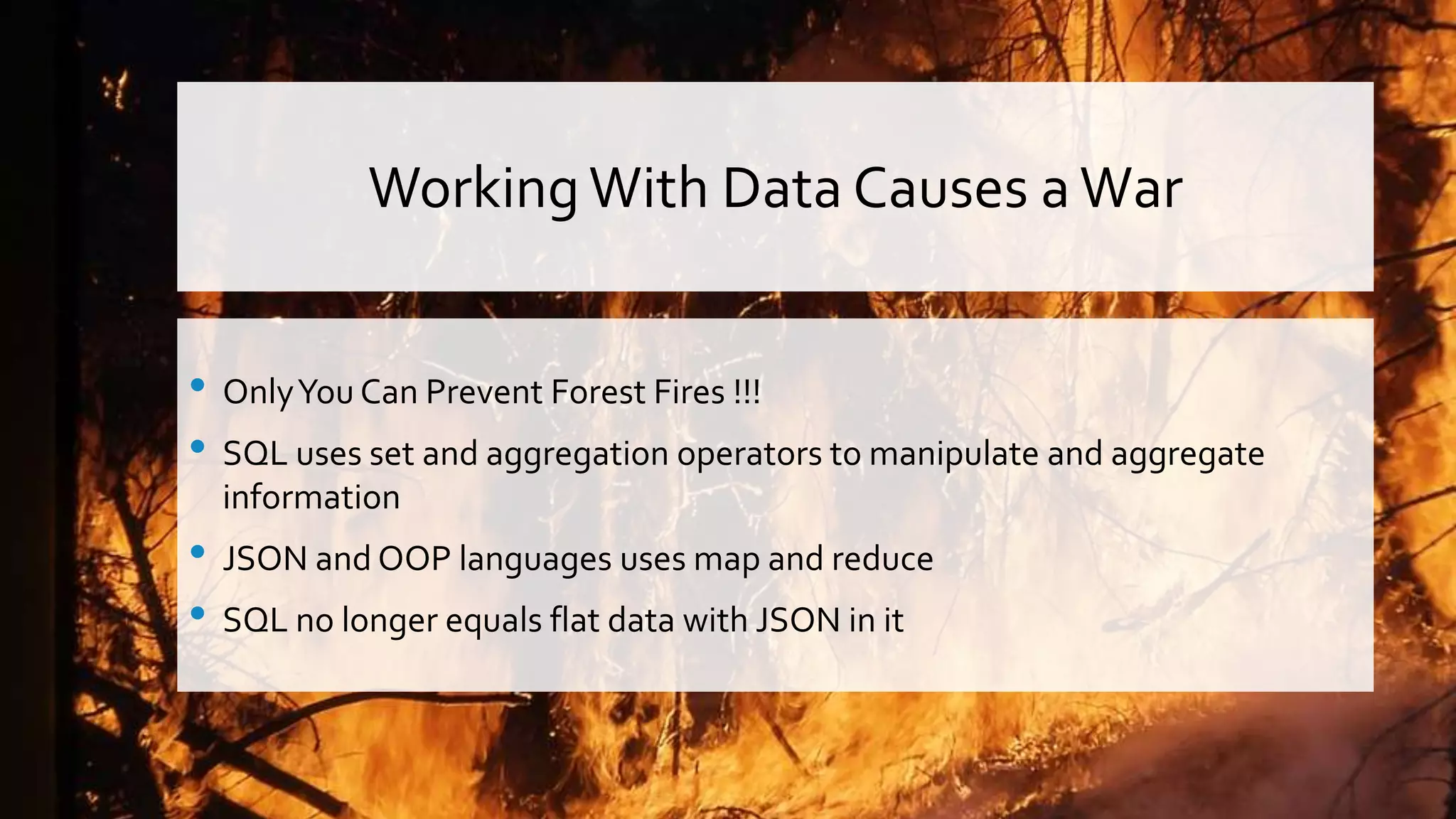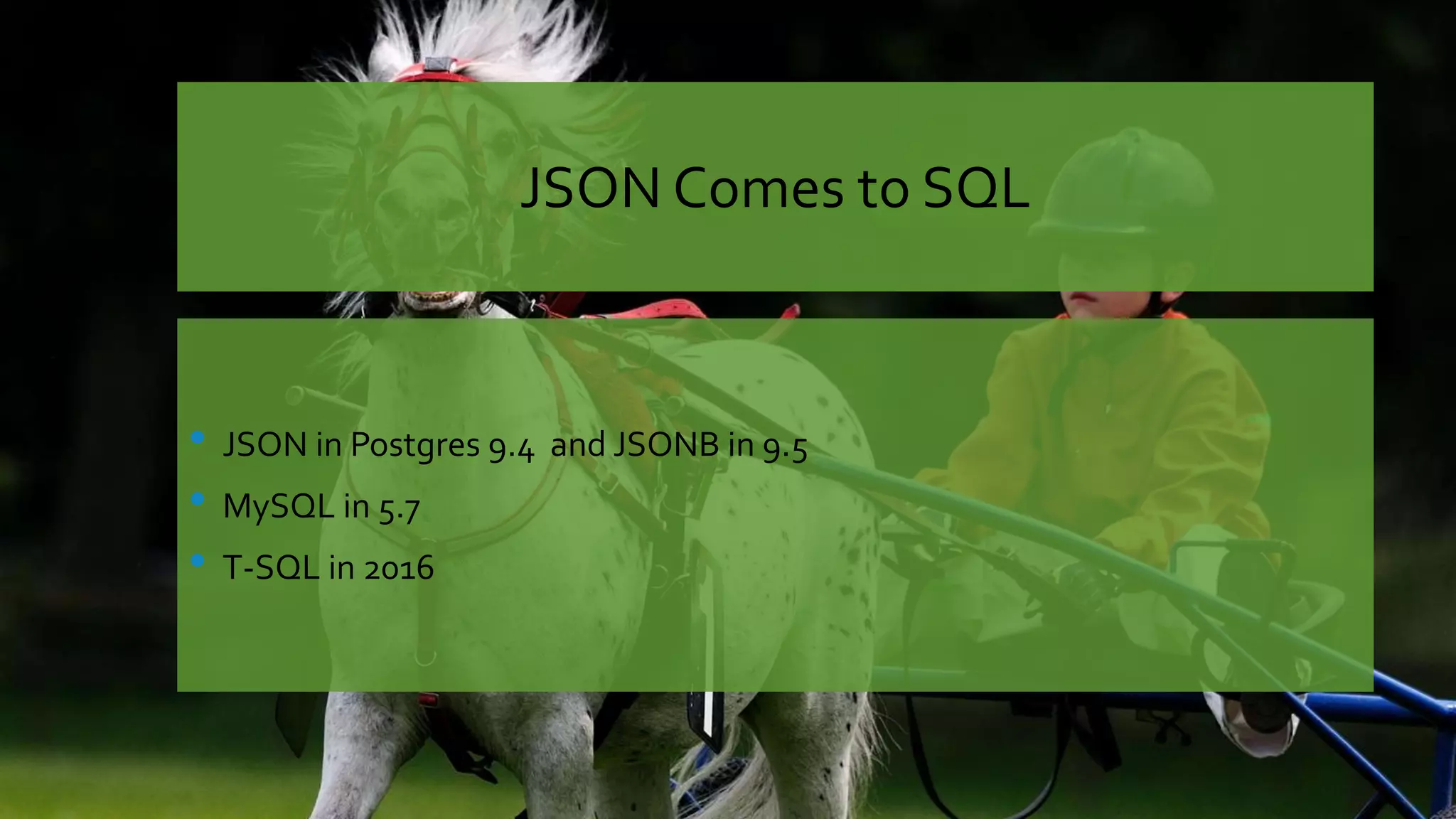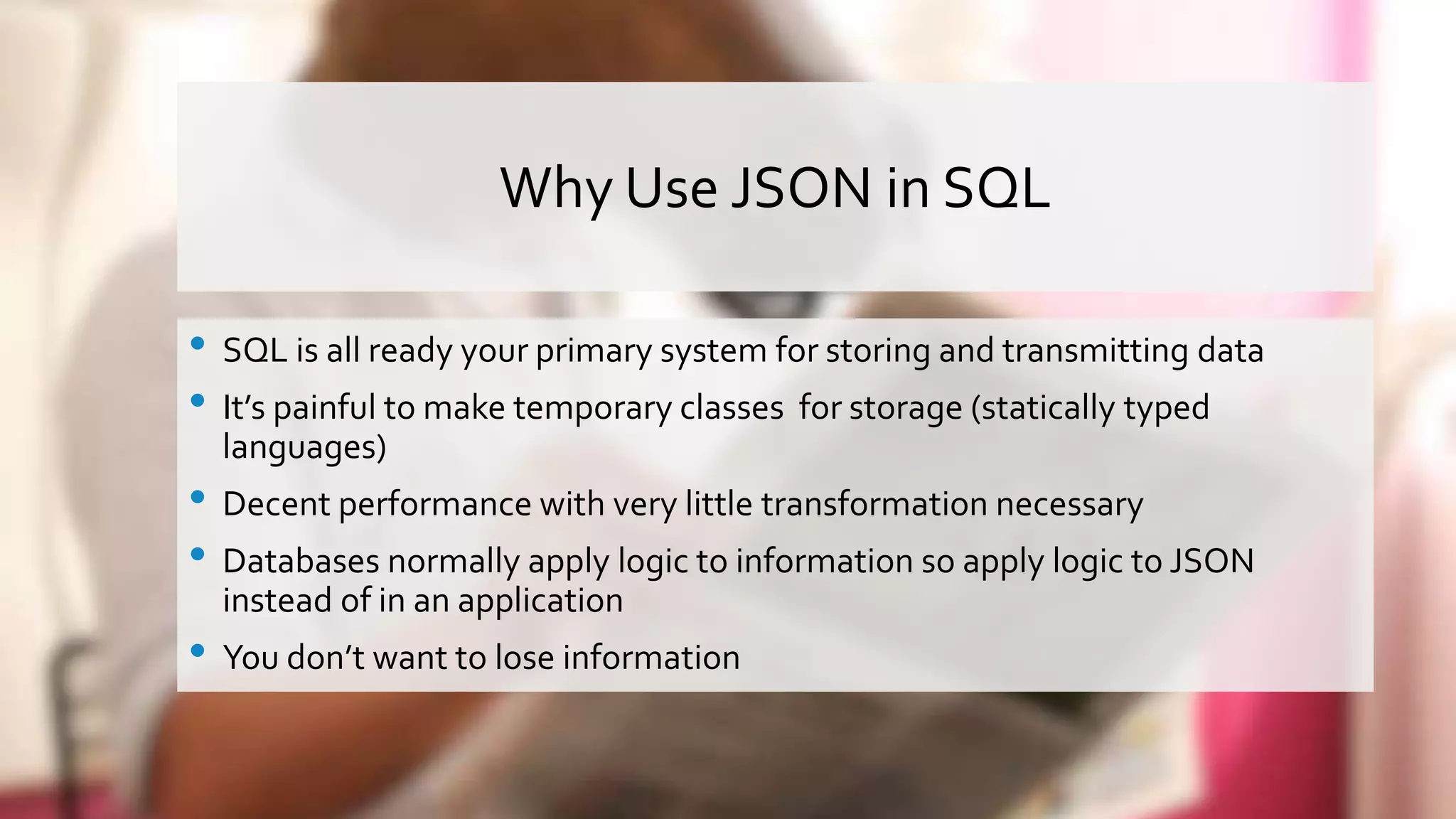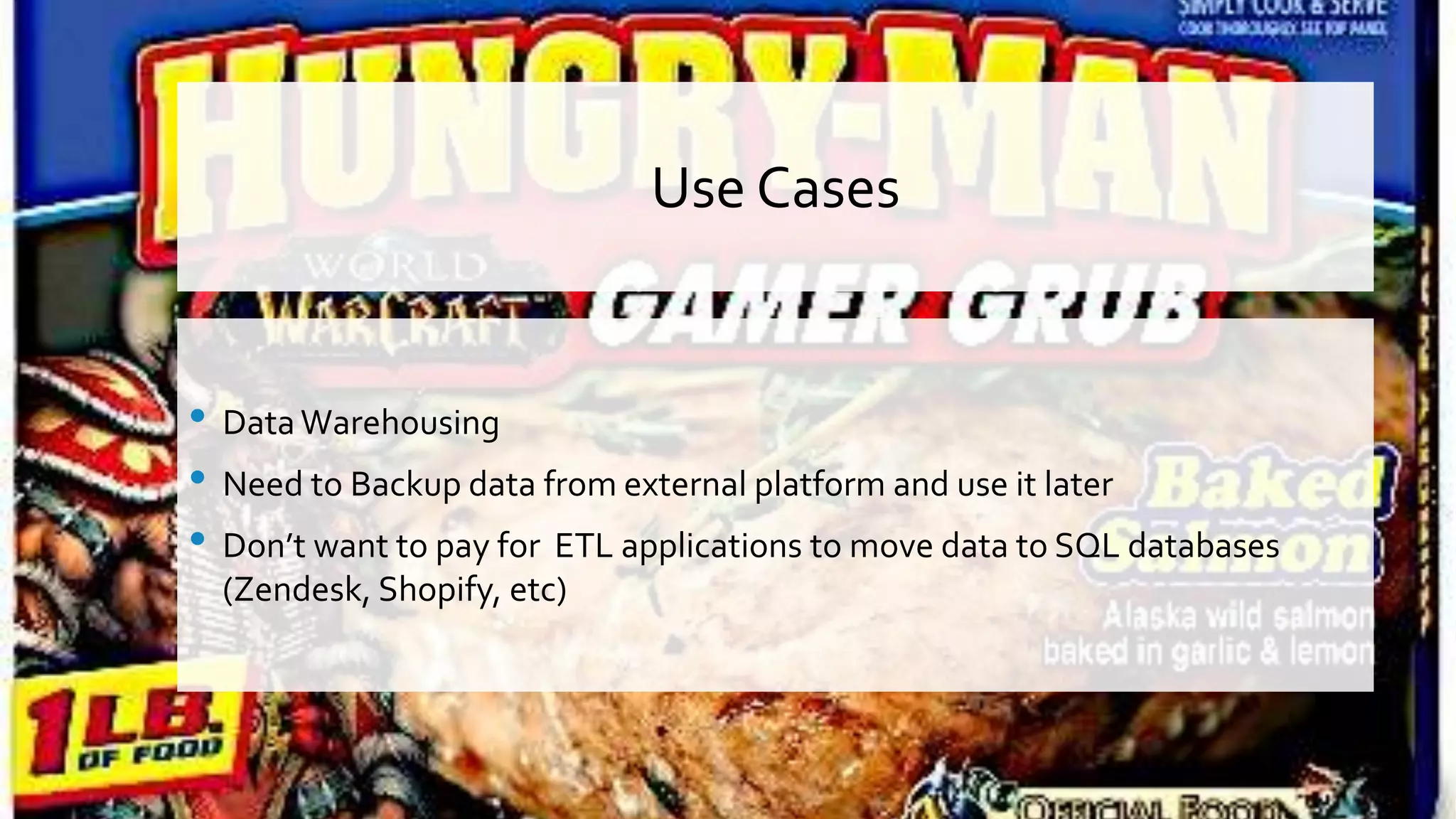The document discusses the integration of JSON into SQL systems, highlighting the advantages of JSON such as its support for basic data types, collections, and hierarchical structures. It points out various use cases for storing JSON in SQL databases, including data warehousing and mitigating costs associated with ETL applications. The author emphasizes the benefits of using JSON in SQL environments for better performance and logic application directly on data.
